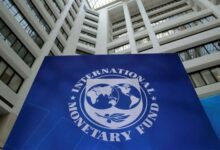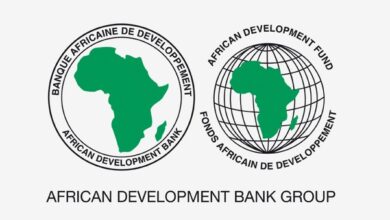Africa losing $88.6bn to illicit financial flow annually -Group
 The Tax Justice Network Africa, on Wednesday says Africa is losing 88.6 billion U.S. dollars to Illicit Financial Flow (IFF) annually.
The Tax Justice Network Africa, on Wednesday says Africa is losing 88.6 billion U.S. dollars to Illicit Financial Flow (IFF) annually.
Consultant to TJNA, Prof. Waithaka Iraki, from University of Nairobi, Kenya, made this known in Abuja at the launch and dissemination workshop of study report on Tobacco Industry and Illicit Financial Flows in Africa.
The event was organised by Civil Society Legislative Advocacy Centre (CISLAC) in collaboration with Tax Justice Network Africa (TJNA).
Iraki while reading the policy brief on “Africa should not be Tobacco’s wild-wild west” said this was mainly propagated by tax evasion by multinational companies operating in the continent.
”The AU/UNECA’s High-Level Panel on Illicit Financial Flow (IFFs) Report 2015 brought to the world stage the scourge of IFF on sustainable development and revealed that more than 50 billion U.S dollars annually was being siphoned on the continent .
“Recent data from the United Nation’s conference on Trade and Development’s Economic Development in Africa report 2020 indicates that IFF have nearly doubled and Africa is now losing over US$88.6 billion.
“Tax evasion strategies to includes illegal and exports; such are taxed differently and the difference can lead to tax loss, illegal production and sale, fudging data to obfuscate information that would be used by tax authorities.
“It also noted that political instability could also enhance tax evasion.
“Tobacco firm’s’ revenue were surprisingly steady even during the COVID-19 pandemic, laws should be tightened to reduce advertising and promotions which keep the demand high,’’ he said.
Iraki said that clearly the African Government had not done enough to reduce the tobacco induced burden, adding that the current regulation should be revisited.
He said that low-level competition in the tobacco industry from planting to selling and cigarette making gives tobacco firms too much power.
He, therefore, added that regulation should induce competition along the tobacco supply chain because more competition would reduce the profits and disperse the power of tobacco firms.
He said that the incentives offered to tobacco firms are not commensurate with their contribution to the economy; and seem to ignore the health cost .
“Tobacco money is made in Africa ,money goes elsewhere to shareholders outside the continent ,’’he said.
Also, the Director of Customs Union and Taxation , Tiemtore Salifou represented by Tax Advisor ECOWAS commission , Lucien Ametchowou explained that with the establishment of an ECOWAS Common External Tariff (CET), the West African Region is taking another step towards the completion of the common market.
He said the situation in West Africa countries shows the lack of use of taxation and the lack of synergy between research, advocacy and policy making in tobacco control.
He said the harmonisation of custom duties and taxes of equivalent effects at the border states would provide an adequate platform for building the common trade policy of ECOWAS.
According to him, Tobacco abuse is responsible for more than six million deaths per year and has become one of the major challenges of all countries in the world.
Mr Auwal Rafsanjani, Executive Director CISLAC, said that TJNA with CISLAC conducted a research to show the effects of tobacco companies activities in Africa.
Rafsanjani said that this was part of the contribution of the group to ensure that IFF, money laundering , tax evasion tax avoidance, which are directly affecting African economy and development is curbed.
“So we decided to carry out this study to show the consequences, the t negative effects of the way tobacco companies are destroying the health of Africans by sometimes pure corruption in Africa because some of them have found way of bribing African parliaments.
“This is so they can have a soft landing legal framework; they work with some unpatriotic government officials in Africa to get tax relief and waiver instead of taxing them the appropriate taxes that can be used for development.
“This is why we have been working closely with some of the government agencies to show them the implication of the activities of these multinational corporation in the name of tobacco industry, who, over the years, have done a lot of harm to the health and well-being of Nigerians and Africans,’’ he said.
Mr Alvin Mosioma, Executive Director, TJNA, said the report looked at the role of multinational companies, particularly that are focused on tobacco cigarette production in the continent.
Mosioma said the project brought together five organisations across the continent from Nigeria, Zambia , Senegal, Kenya and Democratic Republic of Congo (DRC) to seek ways to ensure that African countries initiate the right tax policies to control tobacco consumption.
“The report we are launching today tries to do an analysis of the avenues that tobacco companies in Africa are using to reduce the tax that they pay to our governments.
“There are two ways you can look at the tobacco discussions in the continent, one is from the health perspective looking at how to ensure that the right policies are put in place to reduce the consumption.
“The second is to ensure that even as we are reducing the consumption , that the companies that are responsible for the production and the sale of tobacco products in the continent are paying their fair share of tax,” he said.
(NAN)












